Looted fields and soaring hunger: Gang violence hits Haiti’s rural heartlands
Gangs have taken over the troubled Caribbean state, increasing the urgent need for aid to be delivered to a population on the brink of mass famine, writes UN communications assistant Stephanie Rigaud in Port-au-Prince

Your support helps us to tell the story
From reproductive rights to climate change to Big Tech, The Independent is on the ground when the story is developing. Whether it's investigating the financials of Elon Musk's pro-Trump PAC or producing our latest documentary, 'The A Word', which shines a light on the American women fighting for reproductive rights, we know how important it is to parse out the facts from the messaging.
At such a critical moment in US history, we need reporters on the ground. Your donation allows us to keep sending journalists to speak to both sides of the story.
The Independent is trusted by Americans across the entire political spectrum. And unlike many other quality news outlets, we choose not to lock Americans out of our reporting and analysis with paywalls. We believe quality journalism should be available to everyone, paid for by those who can afford it.
Your support makes all the difference.For his entire working life, Augustin has earned a living tilling the fertile land of Haiti’s central Artibonite department, the country’s breadbasket.
But when harvest time arrived last May, the 42-year-old rice farmer found bandits stealing his crop, their guns at the ready.
“I ran for my life,” recalls Augustin, whose last name is being withheld for his protection. The traumatic experience aggravated his diabetes, forcing doctors to amputate two of his fingers and one leg.
Instead of helping to feed his country, Augustin and his family now count among its more than 362,000 conflict-displaced people.
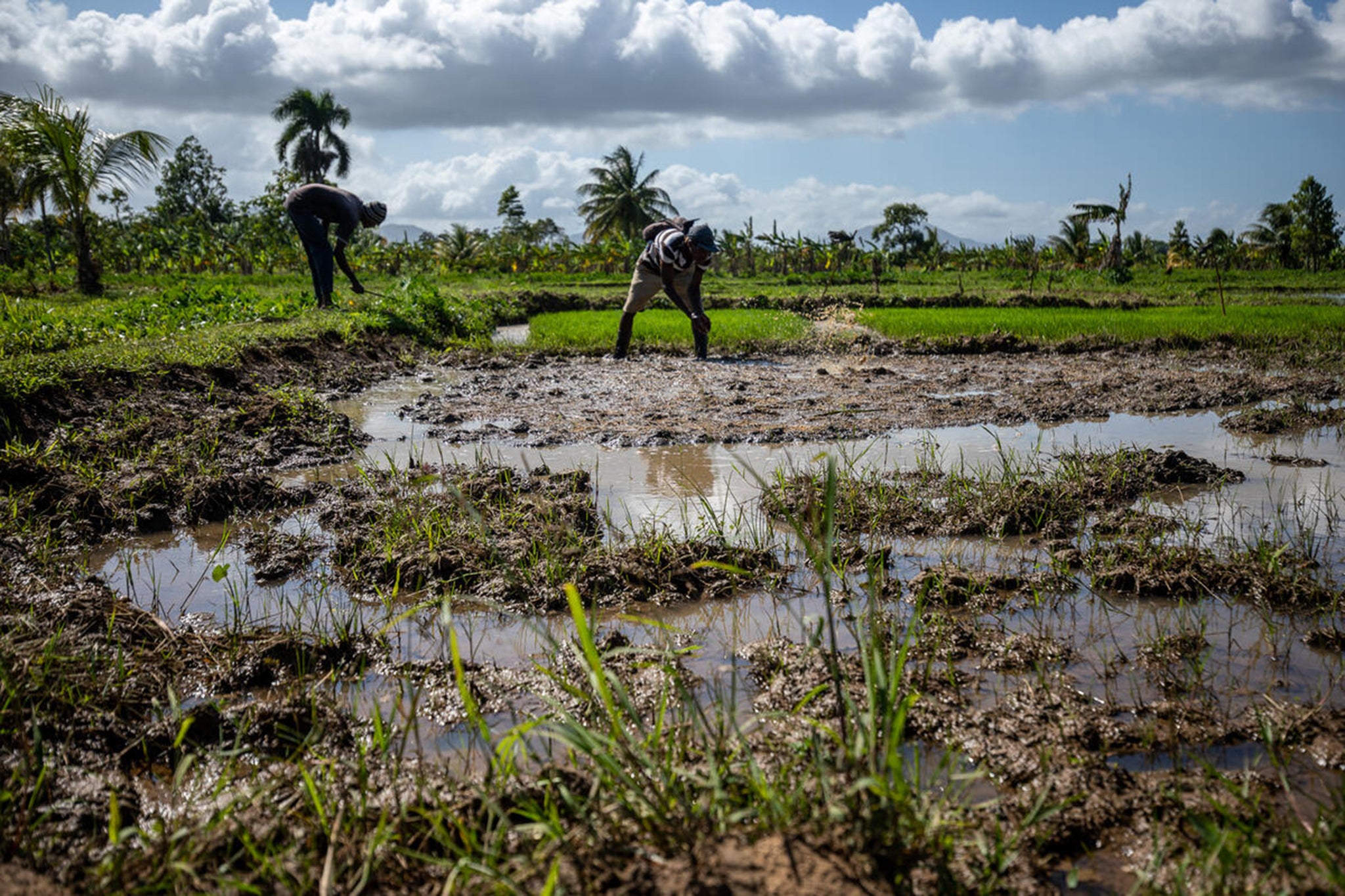
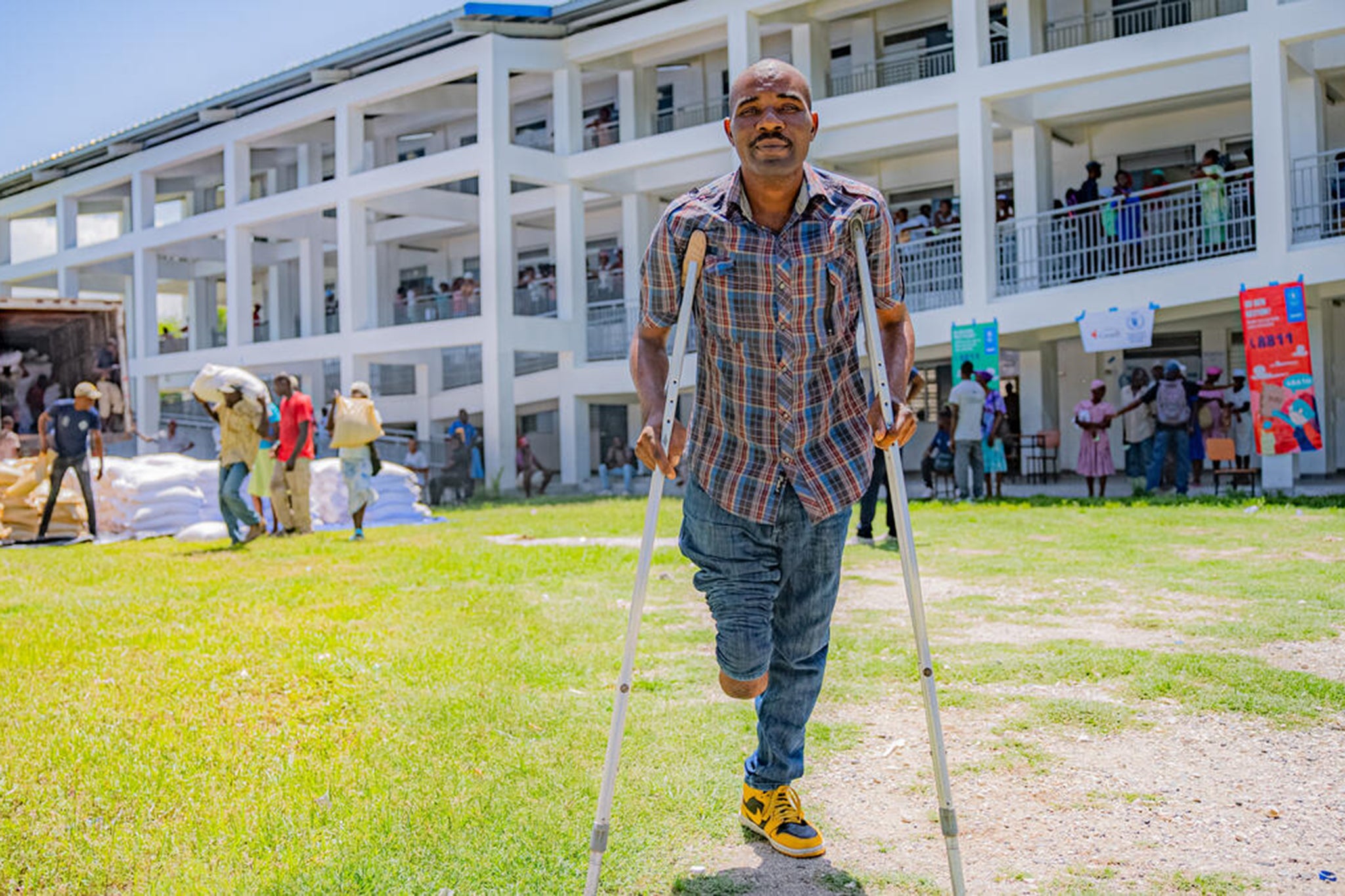
“Today, I depend on others to survive,” says the father of five, whose family now shelter in a rural home a dozen kilometres away.
A massive humanitarian catastrophe risks engulfing Haiti, with hunger at an all-time high, fuelled by spiralling violence, political instability and soaring inflation.
Nearly 5 million people – almost half of the country’s population – now face an acute food shortage and struggle to feed themselves. The United Nations World Food Programme (WFP) is at work in Haiti and helps feed more than 400,000 school-age children daily.
The fallout from the country’s worst armed uprising in decades has spread far beyond the capital Port-au-Prince, where armed gangs control much of the city and have forced thousands to flee.
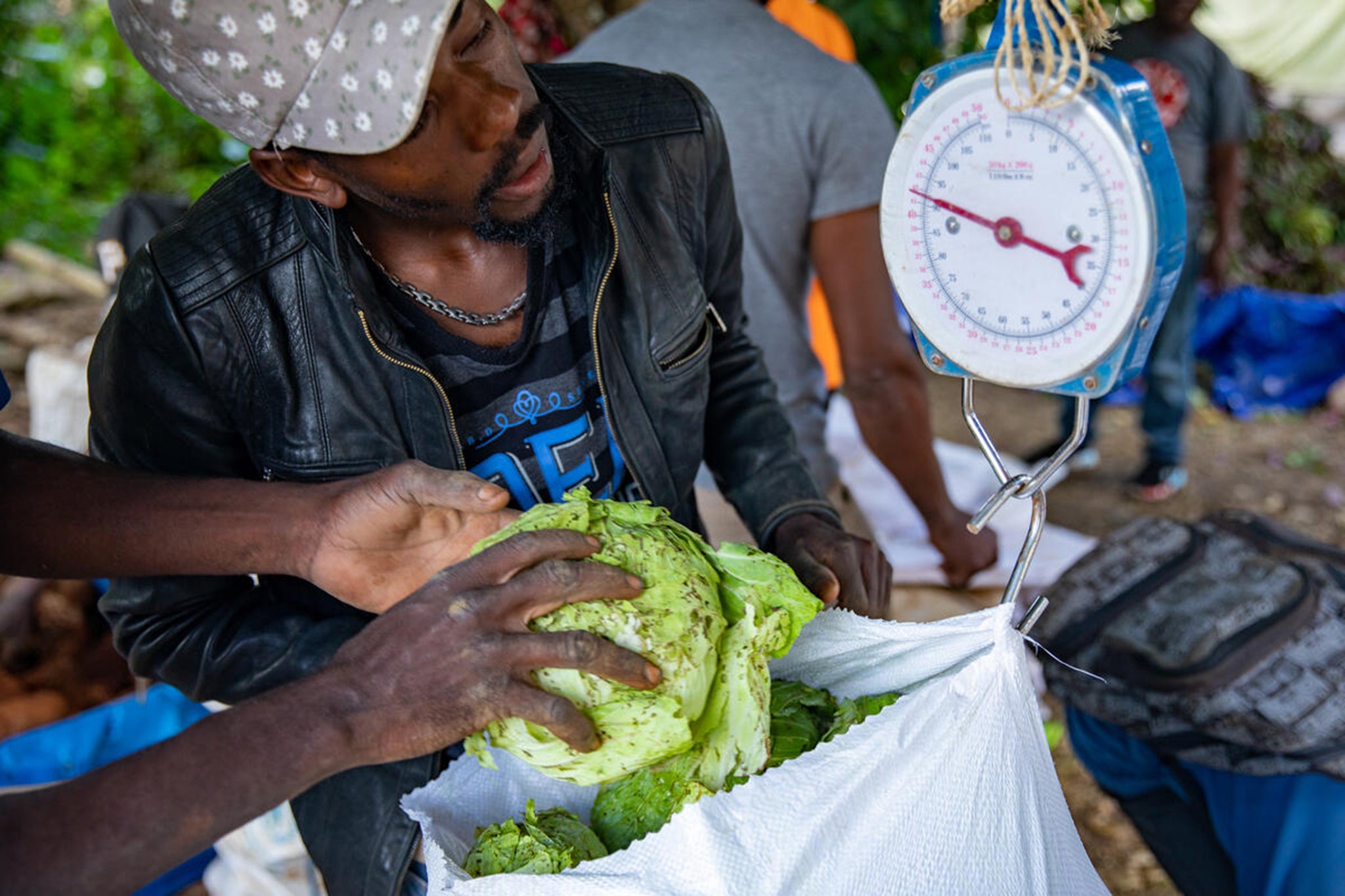
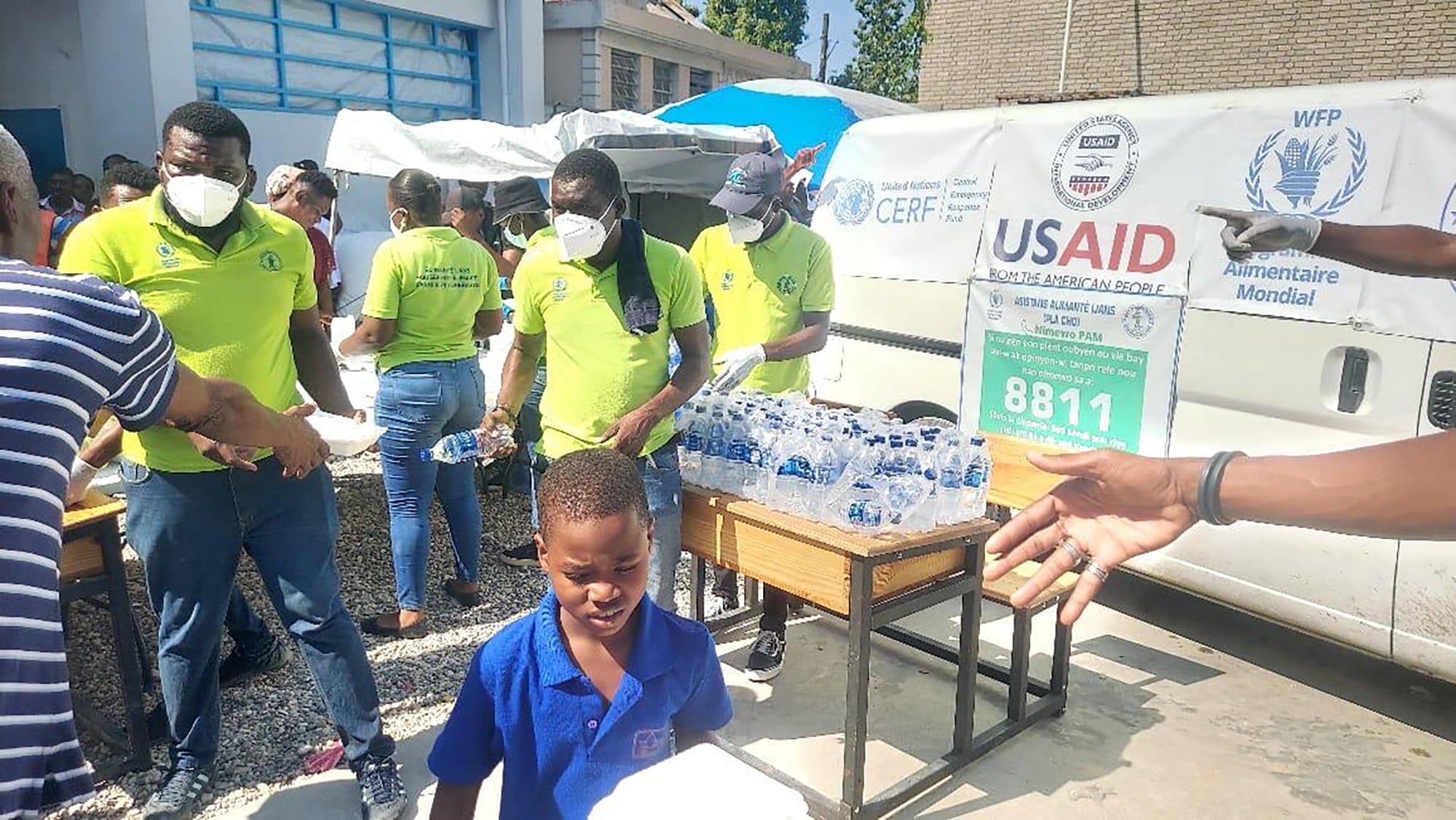
Port blockades and roadblocks have led to food and fuel shortages. Prices are rocketing and so is hunger. More than four in 10 Haitians are acutely food-insecure, with some 1.4 million one step away from famine.
The situation is not entirely bleak, however. In safer parts of Artibonite, where thousands of conflict-displaced families have found refuge, satellite imagery has detected new plots of cultivated land. Our research shows that food insufficiency in these areas has been reduced by nearly a fifth.
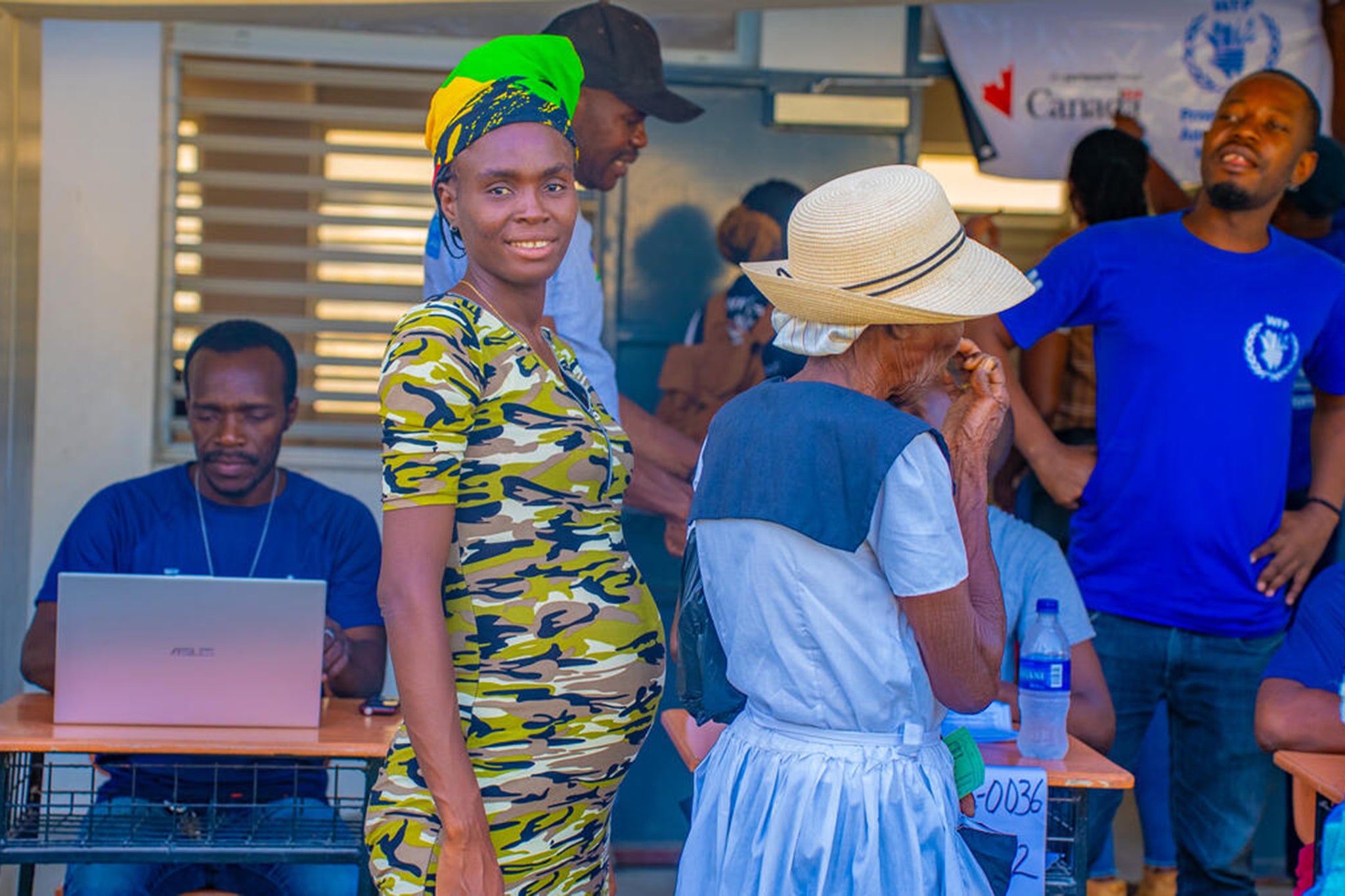
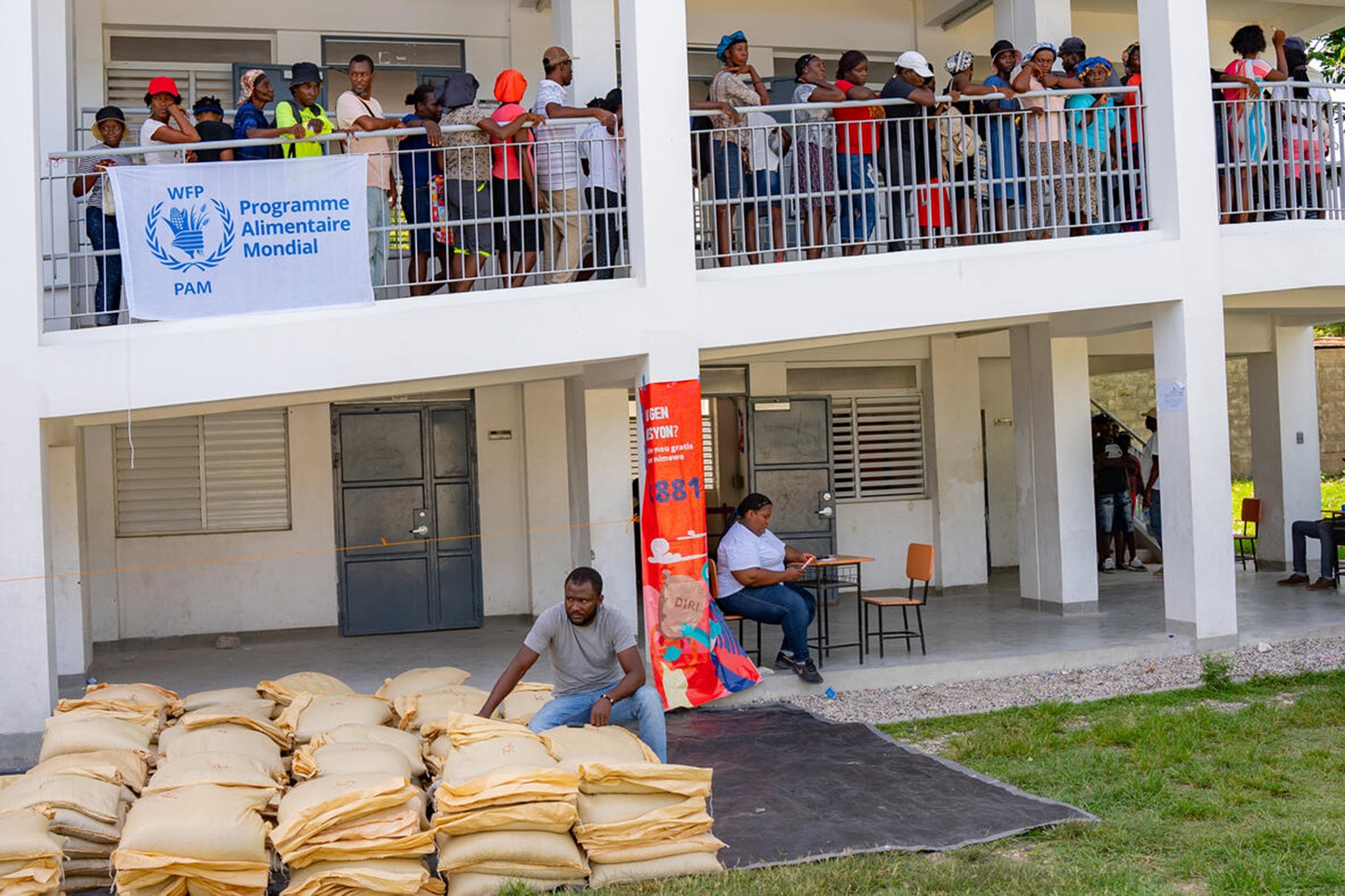
But it is not enough. “Needs are high,” says the WFP’s Jean-Martin Bauer. “We need security, we need access, we need the shooting to stop.” With vital food cargo blocked from entering the country, the WFP’s own supplies are running dangerously low.
For Haiti’s farmers, the spiralling violence adds to a raft of other challenges. Climate change has unleashed both floods and punishing droughts in recent years. The surge of displaced people from the capital has increased the food needs in the rural areas that now shelter them.
Last year, the WFP teamed up with the government and partners to purchase a record £6.6m worth of local produce.
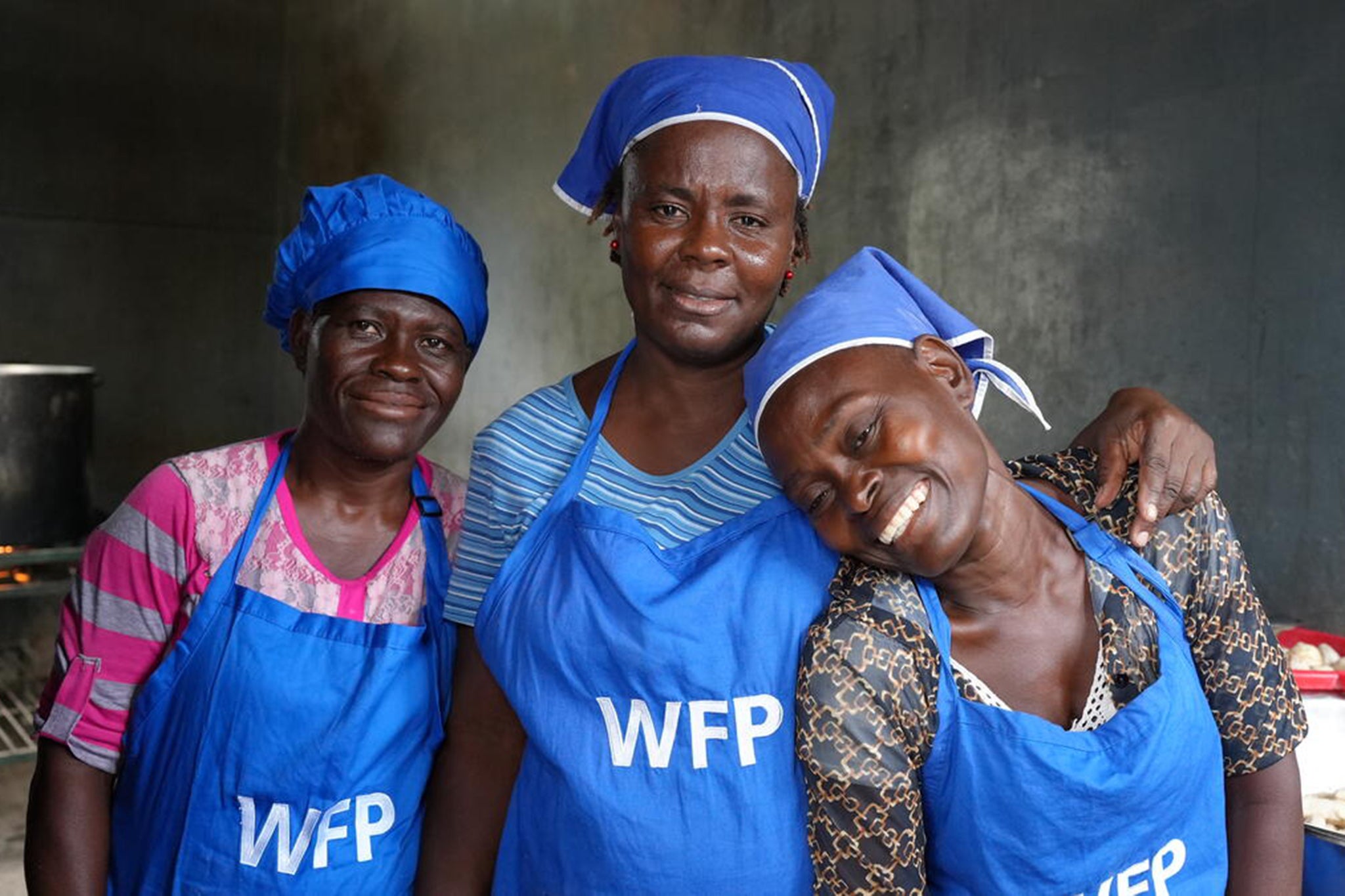
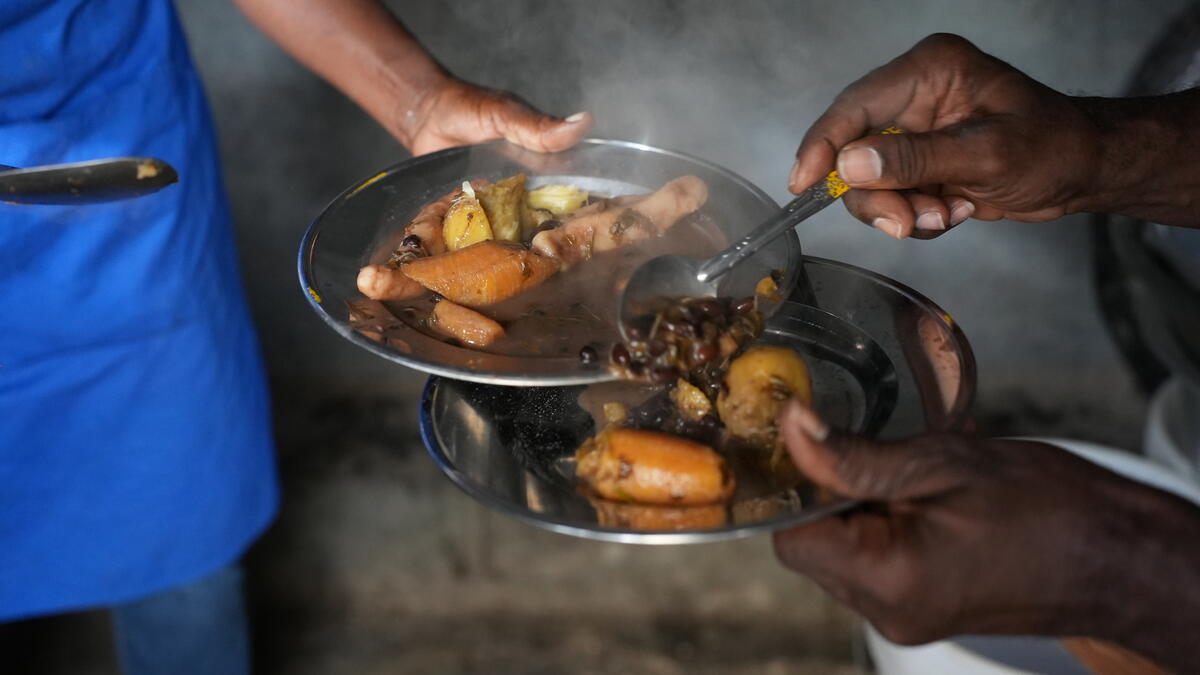
Nearly a fifth of that food has been cooked up into WFP-supported school meals. That share is expected to grow sharply if the country finds some stability. Indeed, the WFP aims to source all its school meals from local farmers as early as 2028, in line with government objectives.
“This is my greatest pride,” says banana producer Iler Cambronne, from the northern Haitian commune of Gonaives, whose produce has contributed to the home-grown school meals programme. “I feel enormous satisfaction when I realise that it’s my plantains that the children eat at school.”
Join our commenting forum
Join thought-provoking conversations, follow other Independent readers and see their replies
Comments